Do you ever wonder how a simple cup of tea opens the doors to a world of culture and well-being? Beyond its rich taste, Green tea holds a wealth of goodness. Packed with antioxidants, Japanese green tea is your daily health dose, wrapped in a soothing brew. Let’s journey to Japan, the Land of the Rising Sun, where tea-making is an ancient art and tending to green tea leaves is a meticulous craft. Join the exploration where we bring forward the 9 best Japanese green tea brands. Celebrated for their unique flavours and global recognition, these brands offer delightful taste and health benefits. Let’s prepare for the adventure in the world of teas to help you find your favourite!
The Best Japanese Green Tea Brands: A Face-Off

Choosing the perfect Japanese green tea is not an objective query where one answer fits all. It is subjective, as it depends on individual preferences. While finding the perfect green tea as your choice might seem daunting initially, it will surely make you feel rewarded once you find “your cup of tea”! Here are some of the most reputed and the best Japanese green tea brands in the world:
ITO EN
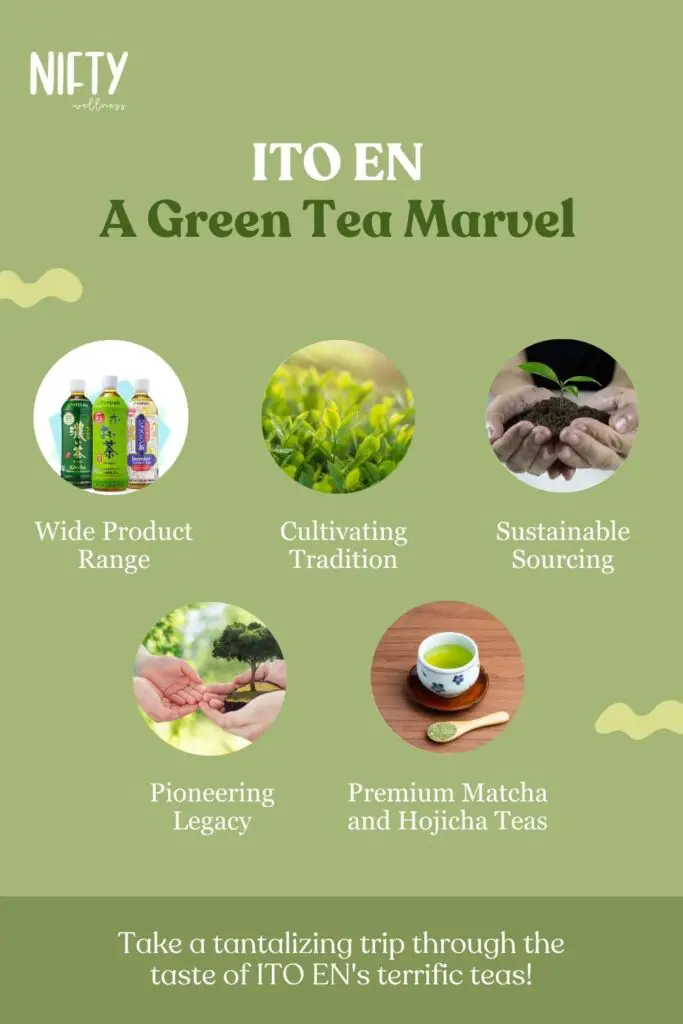
Pioneering since the 1960s, ITO EN offers a range of green teas, including Premium Matcha Green Tea with Roasted Rice and Hojicha Tea. ITO EN Matcha Green Tea, their Premium Matcha Green Tea, boasts a vibrant green hue and a mellow, earthy flavour. In contrast, Genmaicha, their roasted rice tea, is known for its toasty and comforting brew.
Ippodo
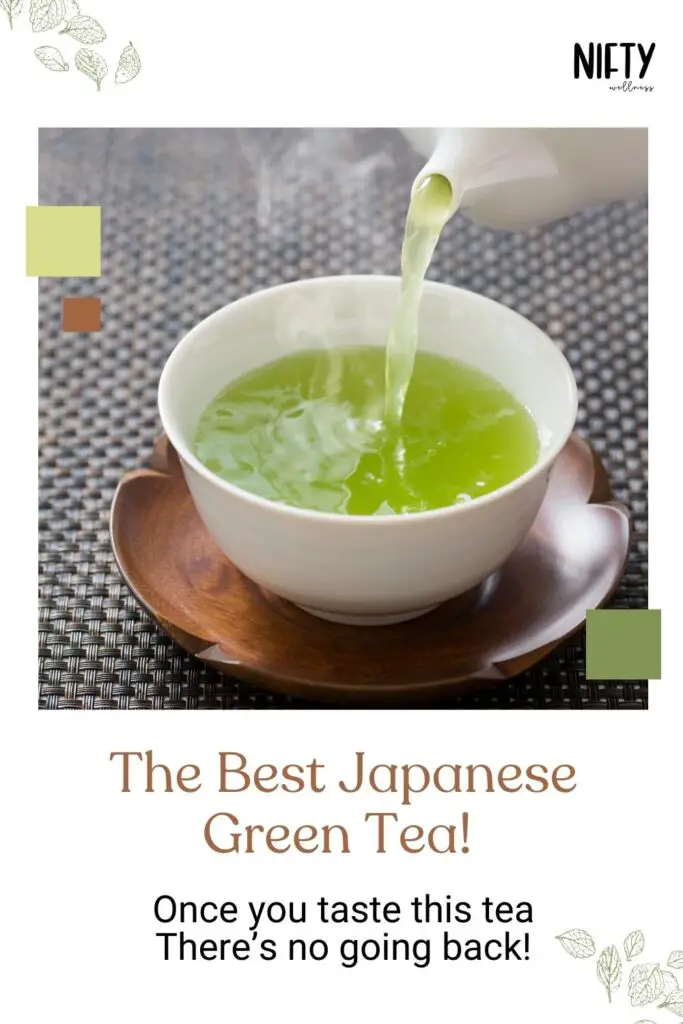
Known for serving some of the best green teas in Japan, Ippodo continues its 3-decade legacy with grace. Their Sayaka no Mukashi Matcha Powder is a top choice for matcha enthusiasts. It offers a rich, umami-heavy flavour and perfectly fits traditional tea ceremonies. For those who want something for daily sipping, try their Japanese Sencha Green Tea Bags, which is the most convenient way to enjoy the freshness of Sencha.
Check out our blog Sencha vs Hojicha: A Detailed Comparison of Two Popular Japanese Green Teas and dive into the delicious dilemma of Sencha vs Hojicha!
Kunitaro
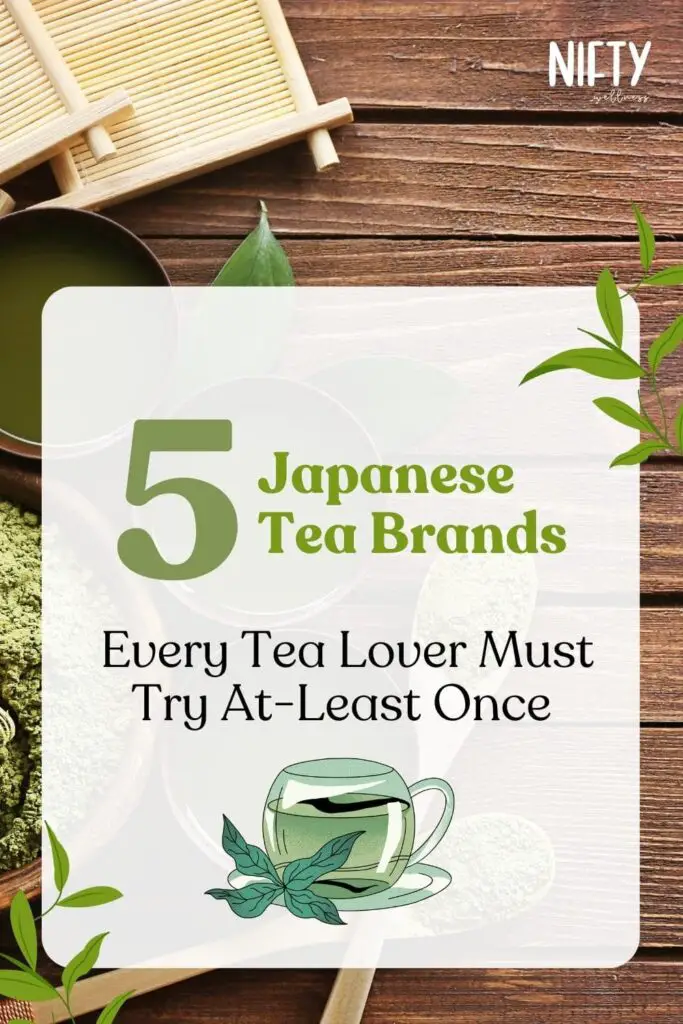
Kunitaro is a beacon of quality and is famous for its Fukamushi teas. Their Fukamushicha Decaffeinated Japanese Green Tea Powder offers a rich and full-bodied flavour without the jolt of caffeine. For people who wish to minimize their regular caffeine intake but want to enjoy a hot beverage, Kunitaro’s unique servings are what you need!
Honjien
Founded in 1931 as a Japanese tea specialty shop, Honjien crafts tea utensils and high-quality organic matcha. Their Organic Matcha Japanese Green Tea Powder Gold Grade is an organic gem grown without pesticides and chemical fertilizers. A truly versatile addition to one’s kitchen, it is perfect for everyday sipping and extravagant culinary adventures!
Tsujiri
Established in 1860, Tsujiri marries innovation with tradition. Their Matcha Green Tea Latte Powder is a delightful blend of two Japanese matcha types. You can pair it with milk for natural sweetness and a mellow flavour. Besides this, Tsujiri’s Genmaicha Brown Rice Green Tea is famous for its minimal caffeine content enriched with dietary fibre, making it a suitable choice as a lighter tea.
Read our blog 6 Genmaicha Tea Health Benefits, History & Information and discover the incredible health benefits of Genmaicha tea and explore this tea for vitality and wellness.
Marukyu-Koyamaen
Famous for producing top-quality matcha, the history of Marukyu-Koyamaen goes back to the 18th century. They are renowned for their exquisite flavour and vibrant green-coloured tea. Their bestseller, Okunoyama Uji Matcha, is loved across the globe for its intense flavour and rich green hue. This one is a must-try for all green tea lovers.
Yamamotoyama
A journey through time takes you back to 1690 when Yamamotoyama green tea began as a family business. What once started as a family business continues to produce wonders that have captured the global green tea market. One of their best offerings remains their classic Sencha Green Tea, which features a fresh and grassy flavour, capturing the true blue essence of Japanese Sencha.
Aiya Matcha

Famed for presenting the pinnacle of matcha excellence, Aiya Matcha is dedicated to producing quality tea. The proof of their commitment to quality can be seen in their tea’s vibrant hues and robust flavours. While Aiya Matcha offers different types of green teas that one can choose as per their preferences, we have our two favourites lined up. While their Ceremonial Grade Matcha fits perfectly at traditional tea ceremonies, their Cooking Grade Matcha is versatile enough for varied culinary creations.
Lupicia
Unlike other Japanese green tea brands, Lupicia stands out from the crowd owing to its wide variety of green tea blends. From the classic Sencha to contemporary tea creations, Lupicia offers something for everyone. Melon Oolong Tea, a beautiful blend of green tea with a sweet melon flavour, is one of their unique offerings. Lupicia gives the whole green tea game a new twist with refreshing options of flavoured green teas.
Green Tea Health Benefits
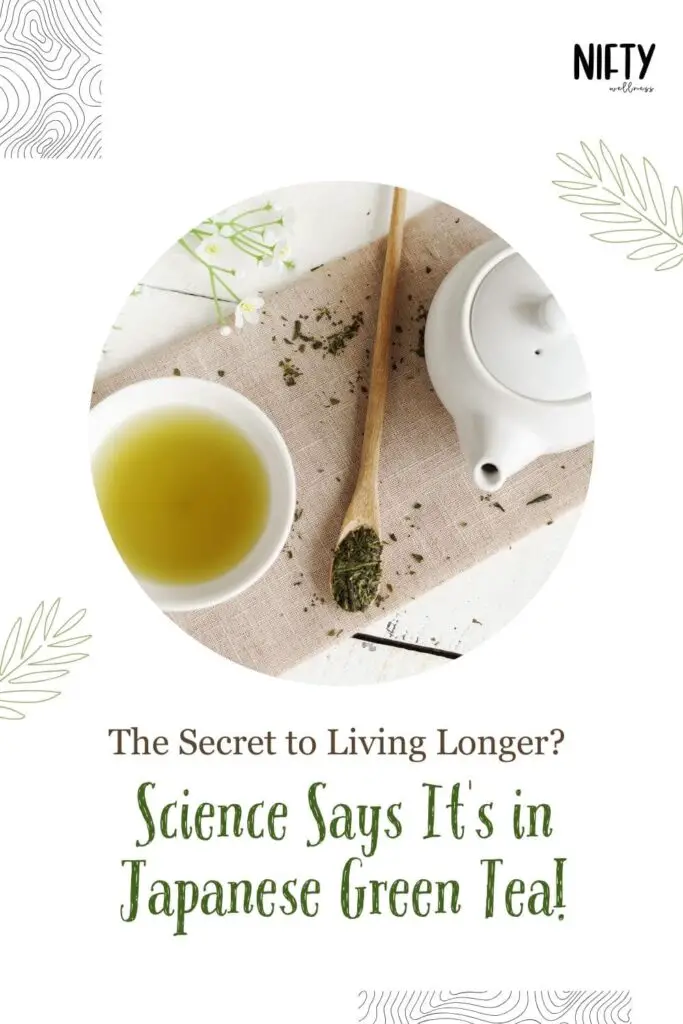
Japanese Green Tea is known for its various health benefits besides being a tasty treat. From helping lose weight faster to fostering relaxation, there are a lot of pros to including Japanese green tea in the daily routine. Let’s dive deeper into the remarkable health benefits it brings:
Potent Antioxidants
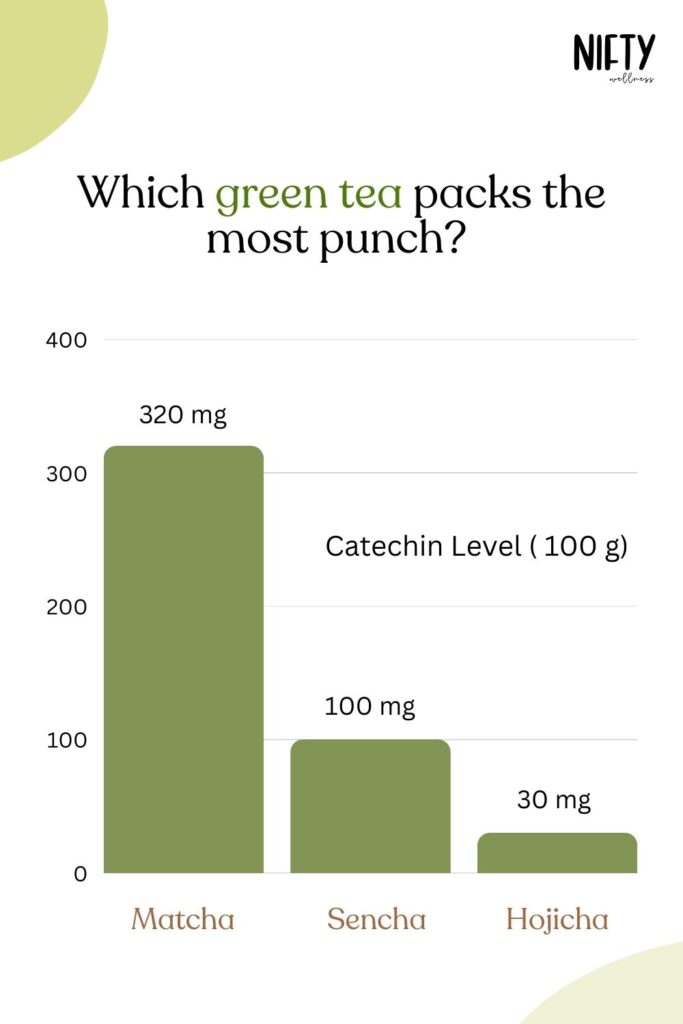
Japanese green tea is loaded with catechins, particularly epigallocatechin gallate (EGCG), which are robust antioxidants. EGCG are natural compounds that fight against radicals that undermine holistic health. Daily intake of green tea is sure to give your body a powerful defense mechanism.
Metabolism Booster & Weight Loss Catalyst

One of green tea’s most well-known health benefits is that it supports metabolism and aids weight loss. The presence of EGCG in green tea makes it a catalyst that fastens the process of burning calories in the body. When complimented with a balanced diet and regular exercise, this can support and fasten weight loss efforts.
Fostering Relaxation and Cognitive Clarity
Japanese green tea contains a unique amino acid called L-theanine. This compound is known for creating a relaxing feel, and that too without inducing drowsiness. Not only this, L-theanine also helps improve mental acuity and enhance concentration power. A fantastic choice for relaxation and productivity at the same time, green tea can help you be calm and focused.
Green tea for Better Heart

It has been noted that regular green tea consumption can help improve cardiovascular health. It is known to lower harmful cholesterol levels, especially LDL (low-density lipoprotein), which elevates the risk of heart problems. Moreover, green tea helps keep blood pressure in check and ultimately contributes to a healthy heart.
Fortifying the Immune System
Green tea is a natural immune booster. Due to beneficial compounds like polyphenols, green tea offers holistic support to the immune system. On the other hand, antioxidants protect the immune system from harmful pathogens, minimizing the risk of infections & illness. Incorporating Japanese green tea into your daily routine empowers your body’s natural defenses.
Conclusion
Integrating Japanese green tea into your daily life isn’t just about enjoying its exquisite taste; it’s a journey toward a healthier and more vibrant version of yourself. Whether you prefer the robust flavour of Matcha, the comforting aroma of Hojicha, or the refreshing qualities of Sencha, Japanese green tea suits your taste. While the types of Japanese green tea might be confusing for you to start with, here is a list of Japanese green teas and how to brew green tea.
Frequently Asked Questions (FAQs)
Is Japanese green tea caffeine-free?
Japanese green tea typically contains caffeine, but the amount can vary based on factors like the tea type and brewing time. Generally, it has less caffeine than coffee but enough to provide a mild energy boost. If you want to reduce your caffeine intake but want a dose of energy, you can try green tea, or if you want a caffeine-free option, try herbal teas like chamomile or rooibos.
Can I reuse tea leaves for multiple infusions?
Yes, you can often reuse green tea leaves for multiple infusions, a common practice in Japanese tea culture. Simply steep the leaves again in hot water, gradually increasing the steeping time with each infusion. However, the flavour profile of the green tea might change with each infusion, helping you discover a different side, a new nuance of the tea.
What is the best way to store Japanese green tea at home?
To maintain the freshness of Japanese green tea, keep it in an airtight container while storing it. It is wiser to use a box made of opaque ceramic or stainless steel and store it in a cool, dry place away from direct sunlight, heat, and strong odours. Avoid freezing the tea, as fluctuating temperatures can affect its flavour.
What are the potential adverse effects of excessive consumption of green tea?
While green tea offers numerous health benefits, excessive consumption can lead to several side effects. From caffeine-related issues (insomnia, jitters) to upset stomach and potential interactions with certain medications, it can have adverse effects if taken in large amounts. It is best to enjoy green tea in moderation.
How can I tell if I am buying authentic Japanese green tea?
To identify authentic Japanese green tea, look for tea labelled as “Japan-grown” or specify a Japanese region like Uji, Shizuoka, or Kagoshima. Check for certifications from reputable tea associations. Purchase from trusted sources, and consider exploring different varieties to learn about their unique characteristics.
